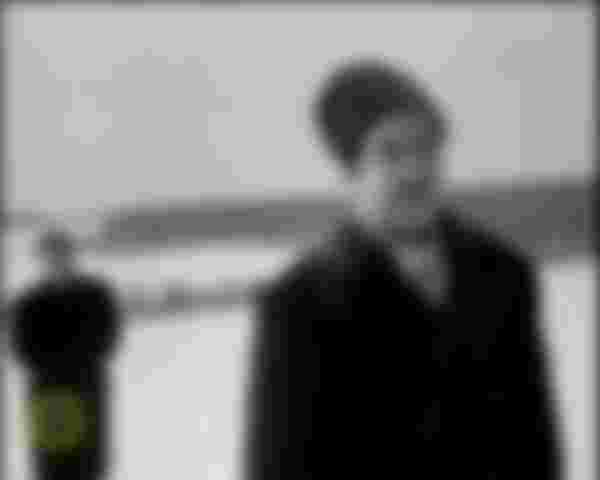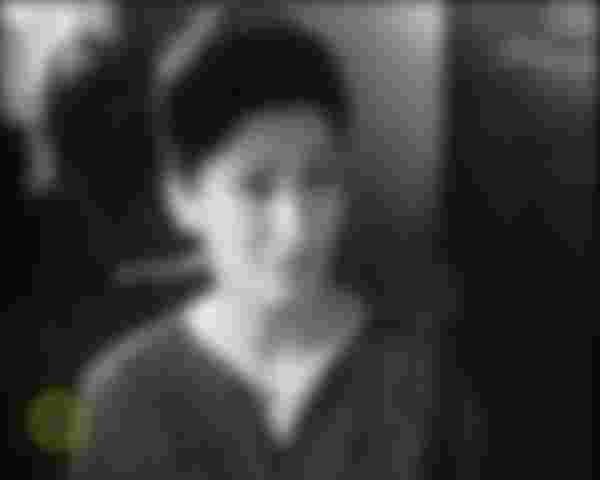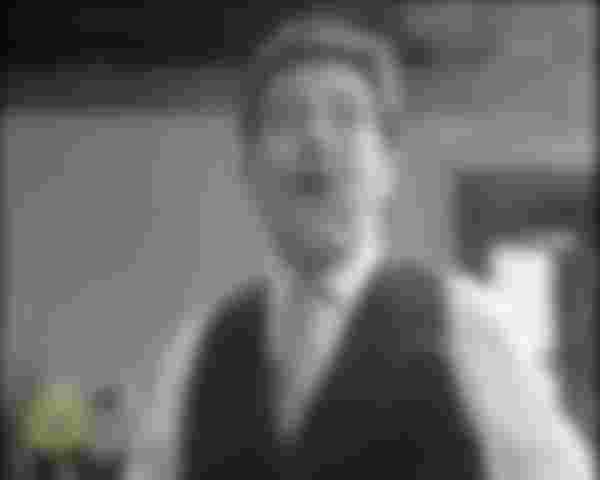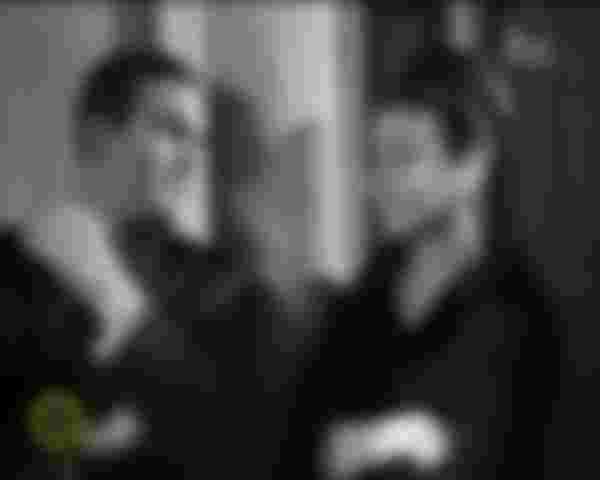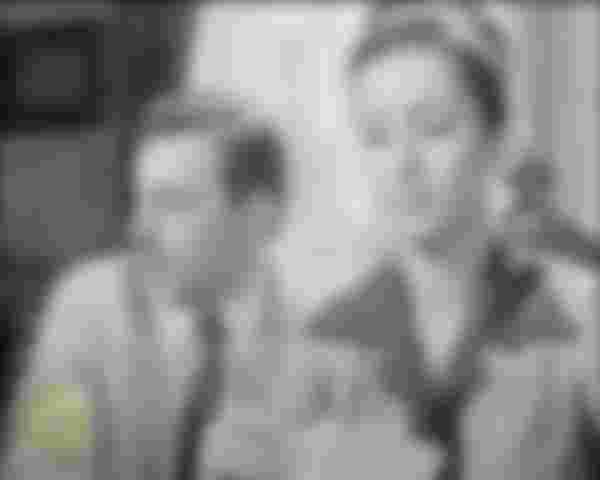"Iszony".
No, I did not let my cat step onto my keyboard and type in random letters. I spelled out a word in my native language, Hungarian. The Hungarian word "iszony" means "disgust", "loathing", "revulsion", "fear" and "phobia" in English - and it also happens to be the title of a novel written by one of the greatest, if not the greatest of Hungarian novelists of the 20th century. The novel does a terrific job at portraying the life of the typical upper-middle class Hungarian during the early 20th century, and how drastically conflicting personalities can completely ruin a marriage. The book was first released in 1947, and received a movie adaptation in 1965.
Want to watch the movie adaptation? Well, unless you can speak Hungarian, you're out of luck, as no one has made any English subtitles or English-dubbed version for it.
(I will be using screencaps from the movie throughout the article. I believe it's fair use.)
However, if you prefer books over films, you're in luck: English translations of the book are sold on AbeBooks (who are NOT sponsoring this article), available on Google Books (not sponsored by them either), etc.
However, before I begin the review of the esteemed work of art, I need to put it into a proper historical context. Or more precisely, put the plot into a proper historical context, before I begin spoiling the hell out of it.
Between Two Cardinal Directions
We've all heard it before: Hungary is the gateway between East and West. "Nyugati acél, keleti fortély" (Western steel, Eastern fortitude) - so goes the Medieval Hungarian saying. The Hungarian people originated in Central Asia, but migrated to Central Europe during the Early Middle Ages, settling down, and starting a millenium of race-mixing with Germans, Slavs, and Turkic peoples. In 1001 AD, our first king, Saint Stephen converted to Roman Catholicism and made Hungary into a Western-style Feudal Monarchy. Thus, Hungary became a country both Western and Eastern, our traditions and culture influenced by both the West and the East, our language having loanwords from Latin and German, but also Slavic and Turkic languages too.
However, an underrated fact that's discussed far less often - which is to say, mostly not at all -, is how Hungary occupies a central position not just on the East-West Axis, but also on the South-North Axis in Europe, allowing you to find both tanned people with warm brown eyes and raven-black hair, as well as people with blond hair, blue eyes and other "Nordic" features.
Hot-blooded extroverts of the Southern type who live for chitchat and consider introversion a mental illness? Hungary got them. Cold-blooded introverts of the Northern type who prefer to have a small number of quality friends and lots of time for solitude? Yup, we got those too.
Why am I mentioning this? Because in the novel, we see the clash of North and South in the conflict between the protagonist and the "antagonist", with the protagonist being a highly introverted and somewhat cold-hearted loner of the northern type, the "antagonist" being an instinct-driven and overly social go-happy guy of the southern type.
Premise

Our story takes place in Hungary during the 1920s, just after WW1. The war and the resulting peace treaty - the Treaty of Trianon - shaked Hungary up pretty badly, but not enough to get Hungary out of the interesting phase it was in between ~1870 and ~1940 that Hungarian historians call "torlódott társadalom" (literal translation: Congested society), which is the term Hungarian historians use to describe the side-by-side coexistence of the old quasi-feudal agrarian society and the new industrialized urban society. The story takes exclusively place in rural areas, so readers are definitely going to get far more exposure of the "old agrarian quasi-feudal" side of things, rather than the urban one.

The protagonist of the story is Nelli Kárász, a loner uninterested in men, cold-hearted, introverted, of the northern type. She also comes from a family of impoverished Catholic aristocrats, with her family essentially living like peasants, in spite of their noble blood. Some critics compared her to the Greek goddess Artemis or Anna Karenina.

The "antagonist" - if you can even call him that, as this is a non-violent story with no heroes or villains - is Sándor Takaró, a highly extroverted and social man mainly driven by his instincts, very southern type. He's a simple man who likes simple things - he's also a wealthy peasant, and a Calvinist. He's the wealthy and college-educated representative of the aspiring peasant class that aims to emulate the lifestyle of the depraved gentry.

The contrast between these two characters is very clear. Woman versus man, northern versus southern, introvert versus extrovert, Catholic versus Reformed, impoverished aristocrat versus wealthy peasant. The conflict is set up from the very start.
The Story of a Failed Marriage
Spoiler alert! This part is going to spoil pretty much the entirety of the plot. I'll spoil only what you can see the movie, omitting parts exclusive to the book. Still, if you intend to read the book, you may want to stop reading this article right now.
If you want to be spoiled, by all means, keep on reading.
An interesting fact is, that unlike the movie, the book basically tells the story as one giant flashback, with the protagonist Nelli reminiscing about her terrible marriage.
Our story begins with Sándor Takaró and his brother Imre, having ended their military service and about to return to their university studies, visiting the Kárász-household during a winter holiday, establishing that there is some sort of connection between the two families, and that Sándor and Imre are on friendly terms with the Kárász-family. Sándor seems to be doing favors for the Kárász-family - in the movie, it is never established what it is, besides Sándor paying for the funeral expenses of Nelli's father, whose death comes roughly one-third way in the movie.

Very early on, it is established, that Sándor fancies Nelli, but this attraction is purely one-sided: Nelli would prefer Sándor's brooding introverted brother Imre. This early, Sándor attempts flirting with Nelli, who makes subtle hints that she prefers his brother. The hints are so subtle, that neither of the brothers understand it.
After the brothers leave, Nelli is pestered by her aunt, who praises Sándor, effectively poking and pressuring Nelli to accept his advances.
Afterwards, Sándor visits again, and Sándor attempts to kiss Nelli, who clearly does not consent, and pushes him away.

Following this, things go south for the Kárász-family, as Nelli's father gets really sick, and eventually dies. In his last words, he implores Nelli to marry Sándor, saying that "he can be very good, if you know how to hold him". Following his funeral - for which Sándor paid and had everything arranged - Nelli and her widowed mother are invited to Sándor's place, meeting his father and mother, where Sándor's mother shows Nelli the garden, and makes a few misandrist remarks about men being negligent and unable to maintain fruit gardens.

Following that scene, Nelli expresses her reluctance towards Sándor, with her mother pressuring her to marry him. Nelli is reluctant, and it is then mentioned, that she and Sándor are engaged, even though it wasn't even alluded to or implied anywhere in the film previously. Still, silently giving up to peer pressure, Nelli agrees to the wedding, and we get a wedding scene.
The next scene has the newlywed couple visited by an old friend of Sándor, and said old friend's wife. The old friend is an extroverted and talkative go-happy guy like Sándor, making misogynistic remarks about having to "break in" the wife like a horse during the first weeks of the marriage, this leads to an argument, with Nelli making the claim that the marriage between her and Sándor is one between two equal parties, and rather than a hussar riding her horse, their relationship is like two horses pulling the plow.
After Sándor's friend leaves, Nelli acts somewhat neurotic and admonishes Sándor, making it clear that she doesn't like his friend. What follows is the first argument between husband and wife, foreshadowing all the things to come. Nelli tries to end the argument by finding a distraction, which happens to be cooking, only to be interrupted by nausea, as it is revealed that she's pregnant. The screen fades to black, and we instantly see their child. Fantastic.

In the very same scene, it is revealed, that Sándor's father has a health problem, and after he leaves, Sándor privately tells Nelli, that his father's days are numbered, as he is gradually growing less and less capable of swallowing anything, meaning that he will eventually starve to death, after the constriction of his esophagus will eventually render him completely incapable of ingesting food. The scene ends with Nelli showing him the baby, and talking about how next time, he'll be looking at the outside rather than be bedridden.
You guessed it, the next scene, he's already dead. Nelli and Sándor have moved to his estate - something that Nelli heavily disapproves of -, and are now directly managing the lands that Sándor has inherited. Sándor tries to get over his grief by forcing himself on Nelli, who tries to resist first, but quickly gives up.
The following few scenes show Nelli and Sándor arguing, then Sándor's friends come over to visit, giving Nelli more reasons to complain to Sándor after the visit is over. While Sándor is busy being social and doing smalltalk with his friends, singing and drinking, Nelli has an opportunity to talk to his brother Imre in private, who remarks that Nelli appears bothered and unnatural, making it clear to Nelli, that she will never become a social woman.

It is subtly alluded to, that Imre and his wife Rózsa don't seem to get along too well, and the marriage may be troubled. The viewers know: Rózsa should have married Sándor, and Nelli should have married Imre. Instead of two matches made in heaven, we now have two matches made in hell. Ouch.
The party scene is followed by Nelli complaining about the furniture, Sándor forcing himself on her, and mumbling some nonsense about buying new furniture during sex. The next scene, we see the new furniture, Nelli disliking it, and being inquisitive about how much did it cost the household, scolding Sándor for having so much debt. Sándor complains, that Nelli is demanding, and acts all raw when someone tries to make her happy. This is followed by a scene, at which Nelli is being admonished by another woman - Imre's wife - about how cruel she is to her husband, telling her to count her blessings, as Sándor constantly tries to make Nelli happy, doesn't beat her, practically worships instead, etc. She also warns Nelli that if things continue like this, Sándor will eventually cheat on Nelli.
Then, Sándor and Nelli take a walk, where Nelli accuses Sándor of treating love like a hunting game, where Sándor relied on different people to push Nelli into his bed: first her aunt, then her mother, her father's last words, his mother, etc.
Next, we hear about a new doctor - Jókuthy - moving into town. This is actually an important plot point: Nelli begins to meet with this new doctor, albeit they don't become lovers, not even friends really. I'll explain it later.

Nelli and Jókuthy begin meeting. The doctor flirts Nelli, who doesn't really accept his advances, but nevertheless entertains the thought of meeting him and possibly engaging in adultery with him. They have a conversation, during which Jókuthy easily finds out that Nelli doesn't love her husband, and is in fact repulsed by her own husband. Nonetheless, Nelli doesn't actually engage in adultery.
The next scene, as usual, Nelli is admonishing Sándor: Sándor spent money on getting a new set of formal clothes, when they can't even properly pay for the maintenance for their tractors. Sándor is getting into more debt.
Another scene, another party of sorts, where Sándor and his friends - as well as Jókuthy - play some card game. Nelli harshly rebukes Jókuthy, making it clear that no affair is going on. Fade to black, and yet another scene: Sándor is getting into even more debt. During the argument between the two, Sándor remarks that if he married a rock instead of Nelli, even the rock would be more moved by his suffering, while Nelli calls Sándor an incompetent pansy, saying that she has to be twice the man her husband is to compensate for his laziness and incompetence - an all too common reality in Hungary and Eastern Europe. Sándor says that he tries to do everything in his power to make his wife happy, and gets a scratch-cat fury in return. After a rebuke from Sándor's mother, Nelli leaves her husband, leaves her house, moving back to her own mother's household.
Following her departure, she is effectively "interviewed" by her other aunt, where Nelli reveals all her thoughts, all her disgust, all her sorrow at the prospect of ten fat meaty fingers having the right to touch her whereever they want whenever they want. Nelli gets admonished by her mother, who accuses her of being an un-Christian pagan, but still, Nelli gets accepted back at her home.
The next scene, there has been another implied timeskip: there has been an economical recession. Farmers and landowners - like Sándor - got into bad times, which is made even worse by the fact that Sándor's mother is ill. Soon, the Kárász-family gets a visit from Sándor, informing Nelli that her mother-in-law is deathly ill and wants to see her daughter-in-law one last time before her death.
Nelli agrees to visit her mother-in-law and comfort her in her final days, agreeing to her dying wish that she won't leave her husband again.
Then, yet another scene where Nelli is admonishing Sándor for being in debt and not being as frugal as her. Next, Nelli finds out that Sándor has been having an affair with a servant-girl: in the movie, all we're shown is that a man comes to take away the servant-girl, Nelli tells him that Sándor is at the bank, Sándor arrives home, and ominous music starts to play, followed by a fade to another scene, where Nelli is screaming at Sándor.
In the screaming scene, Nelli is making it clear that she doesn't care who Sándor cheats on her with, but he has no place in her bed. Sándor denies having cheated on her, starts to act irrationally, threatening to shoot Nelli with a shotgun, and already bringing the weapon out. Nelli beats the gun out of Sándor's hand, Sándor starts crying about Nelli not loving him, and we get another fade to the next scene.
In the next scene, we find out that Sándor was playing firefighter, resulting in him catching both pneumonia and the flu. His doctor - the old Slenkay - tells him that he is his last patient before he leaves town, which is going to leave Jókuthy as the new town doctor. Slenkay tells Sándor not to have sex, as his heart pulse is weaker than that of an infant's.
The following scene, Sándor is trying to fall asleep in Nelli's bed, attempting to have sex with her, only to have Nelli violently resist, scratch her husband's chest and accidentally smother him with a pillow, finding out that she accidentally killed her husband. As Wikipedia says: it is not clear whether he dies of choking or suffocation.
Nelli then calls Jókuthy - not Slenkay, who was Sándor's friend - to examine the corpse and create the necessary documents. She does so, because she knows that Jókuthy is in love with her and is sympathetic to her, eager to cover up the fact that she killed Sándor, faking an accident. We cut to the funeral, followed by Jókuthy visiting Nelli, and giving her an "interview", where Jókuthy is effectively asking Nelli what are her plans for the future.

Jókuthy is once again trying to make his advances on Nelli, who harshly rebukes and rejects him. Unlike the unstoppable and creepy Sándor, Jókuthy accepts this rejection, but still asks Nelli "And what are your plans for the future? Are you finished with life?", to which Nelli responds with a short monologue. And the movie ends.
What Went Wrong?
The marriage between Nelli and Sándor was a stillborn idea. It went wrong before it even started. From the very beginning, it was clear, that Nelli wasn't attracted to him at all, but rather to his more modest brother. From the very beginning, it is quite evident to both the book-readers and movie-watchers, that Sándor is definitely not Nelli's type. For all intents and purposes, Sándor lusts after Nelli's face and body, which is precisely what makes Nelli develop feelings of revulsion towards him.
Even in marriage, Nelli insists on being her own person, on being independent, on her bodily autonomy, and resents the touch of Sándor's fingers, resents his love. Sándor practically worships Nelli, while Nelli tries to be a good housekeeper, but a bad wife. Sándor's tragedy is his inability to see things from other people's points of view, while Nelli's tragedy is getting into relationships that go completely against everything she is.
This is the tragedy of all arranged marriages. The marital contract is one, where ideally both parties partially give up their bodily autonomy in favour of pleasing each other. Sándor would be no doubt open to the idea, but Nelli - who never fancied him to begin with, and gradually grows to be straight-up disgusted by him - just cannot accept such a proposition. This is the tragedy of all arranged marriages.
Sándor and Nelli are two completely different personalities that simply don't fit together. The go-happy male socialite versus the introverted and brooding noblewoman.
In other words, the tragedy of their marriage can be summed up as the marriage of two utterly incompatible personalities, the nun-like Nelli versus the overly social Sanyi, with their differences even showing in work (Nelli being frugal and a good housekeeper, while Sándor has no long-term plans at all, and keeps getting into debt). Nelli was the victim of her circumstances, Sándor was the victim of his inability not to think with his genitalia.
In a way, it is the story of a typical Hungarian family. Among Hungarian millenials, it is an all too common background, that our fathers and grandfathers were alcoholic manchildren who married younger yet more mature, responsible women, who would wear the pants in the relationship. However, that was after the 1950s. In the 1920s, the old social norms did not allow the more responsible one to wear the pants in the relationship, and Sándor couldn't become the submissive simp he was probably destined to be.

So What Can We Learn From "Iszony"?
Plenty of things. The first thing to learn would be, that economically motivated arranged marriages never end well. Another important lesson is to consider the synergy between two individuals before deepening the relationship into a marriage.
The writer, László Németh intended to make the novel serve as an example of two individuals seeking to live out their individual desires at fullest at the expense of the other. An important theme of Németh's books - Iszony too, but also his other books - is an emphasis on the contradiction between serving one's community and self-realization as an individual, with Németh's mostly female protagonists typically coming to the tragic realization, that the choice is to either conform to society's expectations and be unhappy, or become individual, which usually leads to a tragic end.
The message of Iszony is as relevant in 2021 as ever, where people enter all sorts of relationships - sexual, professional (yes, I said it in my previous article), etc. - not out of a genuine attraction or willingness, but out of a survival need, leaving the person highly unhappy. I wrote at least two articles drawing parallels between sexuality and work, about how relationship between employer and employee is definitely not a textbook example of consent. How many people throughout history lived very unhappy lives, all because of an arranged marriage?
Iszony is also a good lesson on peer pressure. Every time, it's the death of a relative that keeps pushing Nelli back into Sándor's bed against her will.
Iszony is an important lesson for men to be careful in picking the right woman: even if you think she is the right one for you, if you force yourself on her, you may unleash hell itself, as is the case with Sándor, who effectively committed suicide by marrying Nelli. He married death itself.
Iszony is a great counterargument against self-proclaimed "traditionalists", who decry divorce as a great evil, and claim that all couples were happy in the "good old times". The book was written in the "good old times" (despite being legal, divorce was a big big taboo in Hungary well into the late 1990s and early 2000s, by the way), and it showcases a very unhappy and dysfunctional marriage in a realistic fashion that could have happened in real life.
I believe that there is another lesson in the book that the writer did not originally intend to communicate: the importance of your immediate family as a support network. When Nelli runs away from her husband, she runs back to her mother and aunt, who accept her, albeit keep admonishing her for her decision. After Sándor's death, Nelli once again moves back with her family, and begins working to support them. In the good old days, people didn't simply move out of their parents' houses just because (a nonsensical idea that America exported to the rest of the world ever since the 1950s) - even Sándor had his parents living with him. And if you ask me, that is the way it should be.
